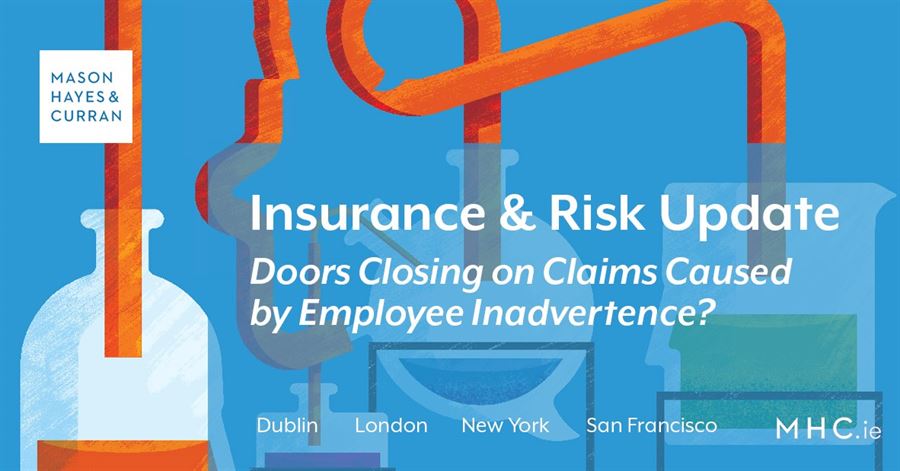
The recent High Court judgment delivered by Ms Justice Creedon in Geraldine O’Grady v Abbott Ireland sees the Irish courts continuing to require plaintiffs to exercise “common sense” in their endeavours.
In a previous article entitled, “Common Sense Prevails”, we examined the decision in the Byrne v Ardenheath case. In this article, we outline the factors in the O’Grady decision and its potential impact in the context of employers liability claims.
Background
The plaintiff in this claim was an employee of Abbott Ireland. She was having a conversation with a colleague while walking to the lift. As the lift doors opened, she turned around to speak to her colleague again. When she turned back towards the lift, the door was closing. She accepted in cross examination that she was not looking towards the lift as she attempted to enter it. As a result, she collided with the lift door as it closed.
The plaintiff’s case
Ms O’Grady argued that her employer was in breach of its statutory duties under the Safety Health and Welfare at Work Act 2005 (2005 Act), the general regulations made under the 2005 Act and the Occupiers Liability Act 1995. She argued that there was an absolute duty on her employer to ensure her safety.
She also argued that there should have been a sensor outside of the doors of the lift and a voiceover alerting her that the doors were closing.
The decision
Ms Justice Creedon considered an employer’s obligations in these circumstances. She rejected the argument that there was an absolute duty on employers to ensure the safety of their employees. She applied the ‘reasonably practicable’ test in section 8(1) of the 2005 Act, which requires employers to do “whatever is reasonably practicable” to ensure the safety, health and welfare of their employees. She also highlighted that section 13 (1) of the 2005 Act imposes a duty on employees to take reasonable care to ensure their safety at work.
The lift in question was found to have conformed to the relevant European standard. Both Ms O’Grady’s and Abbott Ireland’s engineers confirmed that the positioning of the sensor was the industry norm and that voiceover alerts are neither a legal nor an industry requirement.
It was also determined that the lift was adequately maintained.
Judgment
On that basis, Ms Justice Creedon was satisfied that the employer had fully discharged its duties and was not in breach of the reasonably practicable test.
The court commented that “lift doors with or without voiceovers are encountered by people constantly and regularly and it is not reasonable to consider any adult blameless should they enter through a lift door without paying proper attention to it and subsequently sustaining injury”.
Ms Justice Creedon found that the incident was caused entirely by Ms O’Grady’s inadvertence and dismissed her claim.
Conclusion
It has long been lamented by employers that they face an uphill battle in defending claims arising from workplace accidents taken against them by their employees. This decision serves as a reminder that employees have a duty to protect their own health and safety in the workplace.
We saw the application of various “common sense” principles in Byrne v Ardenheath. Although Ms Justice Creedon did not reference the Byrne judgment in her decision, the judicial tide appears to be changing in favour of imposing the requirement that plaintiffs will be more likely to be held accountable for their own inadvertence.
For more information on an employer’s obligation to provide a safe place of work, contact a member of our Insurance and Risk team.
The content of this article is provided for information purposes only and does not constitute legal or other advice.






